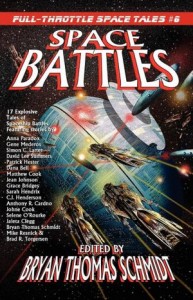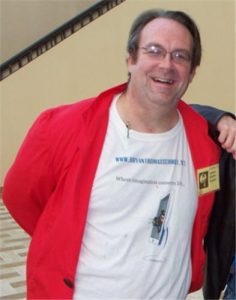 Well, I’ve dreamed for years of full time writing and creative work, and at least for the past two months, I’ve been living that nicely. I’m grateful for this development. I had not had full time work since May 2010, when I was laid off. I have been on unemployment and food stamps and looking for work has been my job, but instead of letting it get me down, I also spent a lot of time writing and editing and developing my network. That has finally paid off in steady work which, if it continues at the present level, should put me at $30k income by a year from now, maybe more. It’s a great opportunity, and I’m thoroughly loving it. But it’s taken a lot of effort to learn how to do this and I continue to learn more all time. I get asked for advice these days on how to build a freelance career, so here a few key tips I’ve learned which have helped me so far:
Well, I’ve dreamed for years of full time writing and creative work, and at least for the past two months, I’ve been living that nicely. I’m grateful for this development. I had not had full time work since May 2010, when I was laid off. I have been on unemployment and food stamps and looking for work has been my job, but instead of letting it get me down, I also spent a lot of time writing and editing and developing my network. That has finally paid off in steady work which, if it continues at the present level, should put me at $30k income by a year from now, maybe more. It’s a great opportunity, and I’m thoroughly loving it. But it’s taken a lot of effort to learn how to do this and I continue to learn more all time. I get asked for advice these days on how to build a freelance career, so here a few key tips I’ve learned which have helped me so far:
1) Diversity — You need to develop your knowledge not only of diverse software but types of writing and editing. From technical to creative, marketing to fiction, you should be familiar with Microsoft Word, Microsoft Publisher, Microsoft Visio, Adobe Photoshop, Adobe Standard/Reader and anything else you can get your hands on. The needs of the jobs vary but being diverse in not only the types of materials you can offer as well as the types of software platforms you are familiar with will really give you the most opportunities. It takes time to develop this, and, perhaps, money if you need software. Some of it can be bought used for much less price. Free classes can often be taken online. Whatever the case, you should develop skills as much as possible in as many areas as you can. And you should build portfolio samples to demonstrate them.
2) Disciplined Hard Work — There’s no way around this. If you want to make money doing this, you must treat it as a job. Set aside specific hours, keep track of them and your tasks, research proper invoicing and rates, track expenses and dedicate the necessary time to work. I have both a daily planner and large desk calendar I use as well as my computer and smart phone to track projects, deadlines, hours, etc. I also track when I bill clients, when they pay me, how much I am owed, bills, etc. I keep a large queue of projects going: https://bryanthomasschmidt.net/2012/10/28/works-in-progress-writing-editing-projects-i-am-working-on/ is my latest list. And I prioritize both based on deadlines clients ask for, when I receive them, type of work, etc. I am honest and up front with clients when time gets off schedule and I work hard to make sure they are kept abreast of all developments. In return, I am developing some steady clients who come back to me and recommend me to others. You must discipline yourself. You can’t be fly-by-night if you want to succeed. Clients do expect fast turn around and high quality. They have a right to when they’re paying you $25-30 an hour and expecting to get good advice. And it means you have to sometimes put your personal projects aside and put the paying projects first. The only way to keep room for your personal projects, in my experience, is to be disciplined and schedule your time well.
3) Networking/Reputation — Almost every opportunity you get will be the result of referrals or tips from someone else. So building a good network and reputation is very important. Not just a reputation as a nice person either. Although my approach of treating people the way I want to be treated is definitely paying off, so is my reputation for meeting deadlines, going out of my way to help and encourage clients, going the extra mile from time-to-time when it’s called for and always doing quality work. Consistency in all of these things will be vital to your success and I highly recommend that you figure out what they mean for you and how to deliver them early on. A big part of this relates to deadlines and billing. Every client wants it yesterday. No one is patient when it comes to this stuff. But if they want quality, they have to give you the time to do it. I always estimate longer than I need so if things come up I am covered for delivering late. It’s far better to please them by turning things in early than disappoint them by being late. The same is true of billing. Estimate higher than expected. Surprising them with a smaller bill than expected makes them smile. Surprising them with a higher bill than expected never does. In fact, it can cause conflict. So don’t create potential conflict by failing to allow for delays and unexpected circumstances.
4) Multitasking — You will have to have the discipline and dedication to juggle multiple projects. There’s no way around it. And it can be hard. It’s hard to edit more than one book at a time. For me, editing a novel and a nonfiction piece can be done simultaneously. I can also edit short stories while editing a novel. Editing two novels at the same time is too hard. You get confused on story elements, voice, pacing, etc. and it slows you down, so I have to keep that in mind when setting up my queues. I tell the clients where they are in the queue and when they can expect me to deliver, and if that changes, I inform them why and how much extra time they should expect. I also offer discounts for larger jobs. You can’t live on one job, so you’ll need several. I spend an hour or two a day doing marketing work, an hour or two paid blogging, and at least four hours on editing, every day. My personal writing time comes beyond that. But at $25-30 an hour, again, I am averaging $125-150 a day which, 5 days a week (I actually work 7 right now) will add up to around $30-40k a year.
5) Marketing — A big part of your marketing is word of mouth. There’s no way around it. But you should also have a website with rates, client blurbs, a list of projects, a bio, and a blog containing helpful tips, talking about your process etc. Put links to this in your bios and email signatures, and spread the word when you can. Ask clients for referrals. Ask friends as well. Let people know what you’re doing. Do some free work in the beginning to prove yourself. Also sites like www.fiverr.com offer the opportunity to demonstrate what you offer at lower rates that can help you build up your client list for later. In the beginning, you start out as an unknown, so you have to make effort to show people you’re capable. From doing websites for people to marketing materials, beta reading critiques, story critiques, and even editing, you can get people talking about and recommending your work. That brings you to the attention of people searching for someone to help them. It takes time. I did so much volunteering for three years and now it’s paying off. From www.fiverr.com 30 minute editing jobs for $5 to editing an anthology gratis to prove myself, I did what I had to, and I’m grateful it’s paid off.
I’m sure I can do more posts on this if it interests people, but that’s enough to really get you started down the right road. I hope it helps both direct and encourage you. I know it’s worked for me, and I hope it continues to. I hope it works for you, too. For what it’s worth…
 Bryan Thomas Schmidt is an author and editor of adult and children’s speculative fiction. His debut novel, The Worker Prince(2011) received Honorable Mention on Barnes & Noble Book Club’s Year’s Best Science Fiction Releases for 2011. A sequel The Returning followed in 2012 and The Exodus will appear in 2013, completing the space opera Saga Of Davi Rhii. His first children’s books, 102 More Hilarious Dinosaur Jokes For Kids (ebook only) and Abraham Lincoln: Dinosaur Hunter- Land Of Legends (forthcoming) appeared from Delabarre Publishing in 2012. His short stories have appeared in magazines, anthologies and online. He edited the anthology Space Battles: Full Throttle Space Tales #6 (2012) and is working on Beyond The Sun for Fairwood Press, headlined by Robert Silverberg, Kristine Kathryn Rusch, Mike Resnick and Nancy Kress, a Ray Gun Revival Best Of Collection for Every Day Publishing and World Encounters and Space & Shadows: SpecNoir with coeditor John Helfers, all forthcoming. He hosts #sffwrtcht (Science Fiction & Fantasy Writer’s Chat) Wednesdays at 9 pm ET on Twitter and is an affiliate member of the SFWA.
Bryan Thomas Schmidt is an author and editor of adult and children’s speculative fiction. His debut novel, The Worker Prince(2011) received Honorable Mention on Barnes & Noble Book Club’s Year’s Best Science Fiction Releases for 2011. A sequel The Returning followed in 2012 and The Exodus will appear in 2013, completing the space opera Saga Of Davi Rhii. His first children’s books, 102 More Hilarious Dinosaur Jokes For Kids (ebook only) and Abraham Lincoln: Dinosaur Hunter- Land Of Legends (forthcoming) appeared from Delabarre Publishing in 2012. His short stories have appeared in magazines, anthologies and online. He edited the anthology Space Battles: Full Throttle Space Tales #6 (2012) and is working on Beyond The Sun for Fairwood Press, headlined by Robert Silverberg, Kristine Kathryn Rusch, Mike Resnick and Nancy Kress, a Ray Gun Revival Best Of Collection for Every Day Publishing and World Encounters and Space & Shadows: SpecNoir with coeditor John Helfers, all forthcoming. He hosts #sffwrtcht (Science Fiction & Fantasy Writer’s Chat) Wednesdays at 9 pm ET on Twitter and is an affiliate member of the SFWA.



